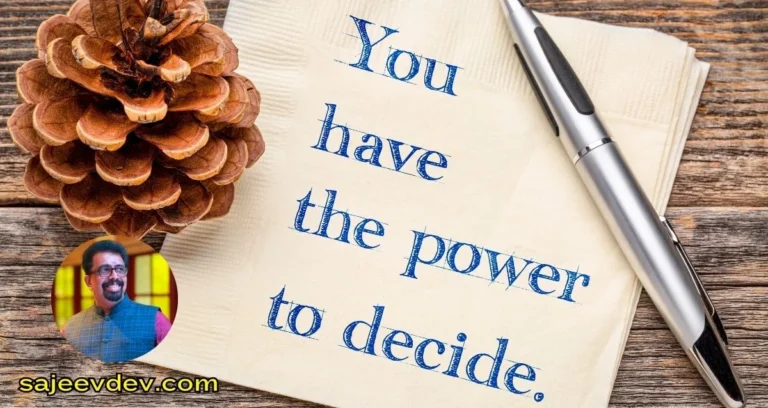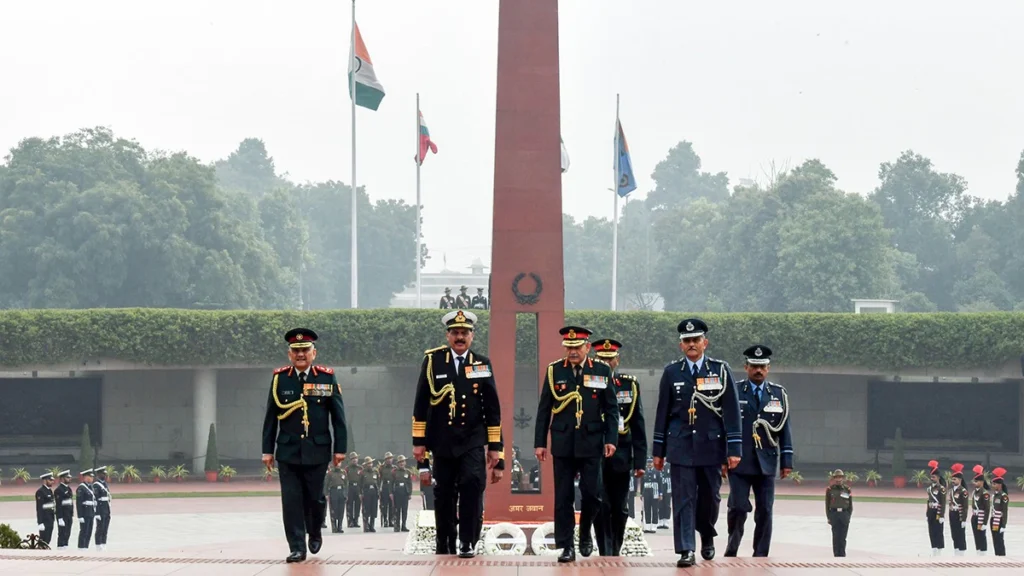
“Bolton Encourages India to Try Every Diplomatic Option Before Taking Military Action!” 2025
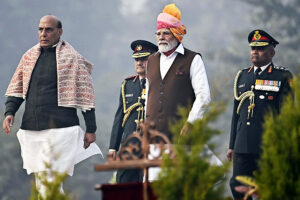
Former U.S. National Security Advisor John Bolton recently made a statement that has generated a lot of debate, urging India to try every diplomatic option before taking military action in response to rising regional tensions. This call for moderation comes as South Asia’s geopolitical dynamics are becoming more unstable and India is juggling complicated relationships with both global powers and its neighbours. Bolton’s comments, which are based on his vast knowledge of foreign policy, highlight how crucial diplomacy is to preserving peace and averting the devastating effects of war. The context of Bolton’s statement, the regional dynamics at work, the possible ramifications of military versus diplomatic approaches, and the reasons his counsel is still relevant in the connected world of today will all be covered in this blog.
UNSC Rejects
The Context of Bolton’s Statement
John Bolton, who served in several U.S. administrations and is renowned for his hawkish foreign policy views, is not usually thought of as a supporter of restraint. His preference for swift action, including military intervention when considered necessary, has frequently been a defining characteristic of his career. His recent remarks about India, however, reveal a sophisticated awareness of the particular difficulties the nation faces. Although Bolton’s exact reason for making the statement was not specified, it seems to have something to do with the continuous hostilities along India’s borders, especially those with China and Pakistan, as well as more general strategic worries about the Indo-Pacific area.
The Regional Dynamics at Play

With two nuclear-armed nations (India and Pakistan) and a new global player (China), South Asia is a region of great strategic significance. A complicated web of alliances, rivalries, and possible flashpoints is produced by the interaction of these countries as well as the participation of outside powers like the US, Russia, and others. Let’s examine some of the most important dynamics:
India-China Tensions
A number of border conflicts in recent years, most notably the 2020 Galwan Valley incident that claimed lives on both sides, have strained ties between China and India. With both countries keeping sizable military installations in the area, the Line of Actual Control (LAC) is still a sensitive topic despite several rounds of negotiations. India’s security concerns have increased as a result of China’s increasing assertiveness, the Belt and Road Initiative, and its growing influence in nearby nations like Nepal and Sri Lanka. Any escalation puts India at risk of a protracted war with a neighbour that is both economically and militarily strong.
India-Pakistan Rivalry
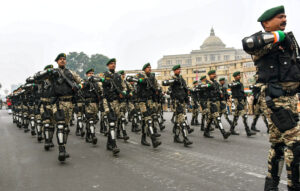
Cross-border terrorism and the Kashmir dispute continue to be major sources of tension in the relationship between India and Pakistan. Even though there are diplomatic channels, events like the Pulwama attack in 2019 and the ensuing airstrikes show how easily things can get out of hand. Diplomacy is a delicate but crucial tool because of Pakistan’s close ties to China and its own internal problems.
The Indo-Pacific and Global Powers
India’s participation in the Quad (which consists of the United States, Japan, Australia, and India) has contributed to the growth of its role in the Indo-Pacific. China’s regional aspirations are perceived as being balanced by this strategic alignment. But it also puts India in a precarious position as it looks to strengthen its relations with the United States and other Western nations while retaining its strategic independence. Bolton’s counsel most likely reflects an awareness that India’s military and diplomatic actions will have repercussions throughout this larger geopolitical environment.
Diplomacy vs. Military Action: Weighing the Options
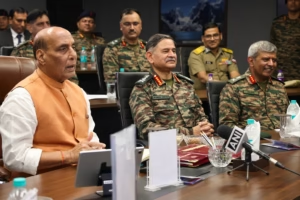
The sharp distinctions between diplomatic and military approaches to conflict resolution are highlighted by Bolton’s emphasis on using all available diplomatic channels. Let’s look at each’s advantages and disadvantages.Lower human and financial costs, the maintenance of enduring relationships, and the possibility of achieving win-win results are some of the benefits of diplomacy. But in times of crisis, patience, goodwill, and domestic political support—all necessary for diplomacy—can be lacking.
Why Bolton’s Advice Resonates
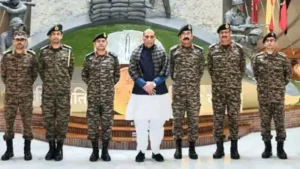
Bolton’s comments are significant for a number of reasons. They originate from someone who has extensive experience handling complex international crises, to start. He gained knowledge of the China challenge, the intricacies of U.S.-India relations, and the larger dynamics of global power during his time as National Security Advisor. Second, his appeal for diplomacy is in line with the increasing understanding that, in the connected world of today, military solutions are rarely definitive. Negotiations and economic leverage are now just as likely to resolve conflicts as using force.
Challenges to Diplomacy in India’s Context
While Bolton’s advice is sound, implementing it is not without challenges. India faces several obstacles in pursuing a diplomacy-first approach:
- Domestic Pressure: Public opinion and political rhetoric often demand a strong response to provocations, making restraint politically costly.
- Mistrust: Historical grievances and ongoing provocations can undermine trust in diplomatic processes.
- Asymmetry: Negotiating with a more powerful adversary like China requires India to balance firmness with flexibility.
- Time Constraints: Diplomacy is a slow process, and prolonged tensions can test the patience of both policymakers and the public.
To overcome these challenges, India would need to invest in strengthening its diplomatic corps, building domestic support for dialogue, and leveraging its soft power to shape regional narratives.
The Path Forward for India
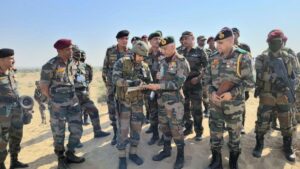
Bolton’s statement serves as a timely reminder that diplomacy, while challenging, remains a powerful tool for resolving conflicts and advancing national interests. For India, the path forward involves a multifaceted approach:
- Strengthen Diplomatic Capacity: Invest in training diplomats, expanding India’s presence in international forums, and fostering expertise in emerging areas like cyber diplomacy.
- Engage Allies: Deepen partnerships with the U.S., Japan, Australia, and European nations to build a coalition that supports India’s diplomatic initiatives.
- Balance Strength and Restraint: Maintain a credible military deterrent while signaling a willingness to negotiate in good faith.
- Promote Regional Cooperation: Work with neighbors to address shared challenges, such as water security, climate change, and economic development, to reduce tensions.
- Leverage Soft Power: Use India’s cultural heritage, diaspora, and economic potential to build goodwill and influence globally.
By adopting these strategies, India can navigate its complex geopolitical environment while minimizing the risks of escalation. Bolton’s advice, though seemingly at odds with his hawkish reputation, reflects a pragmatic understanding that diplomacy is often the most effective way to achieve lasting security and prosperity.
Conclusion
A sobering reminder of the stakes in the current geopolitical environment is John Bolton’s demand that India pursue all diplomatic avenues before taking military action. The decision between diplomacy and conflict will determine India’s future as it manages neighbourly tensions and asserts its place on the international scene. Although military might is still crucial, communication, compromise, and strategic moderation are the keys to long-term stability. India can show leadership, promote peace, and create a more secure and prosperous region by following Bolton’s advice. Diplomacy is not only a choice, but a necessity in a world where the costs of war are constantly rising.


